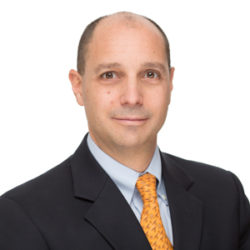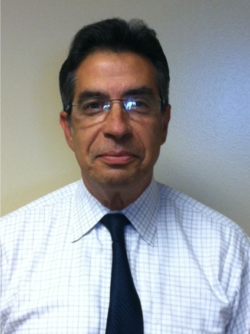Mexico’s Landslide Election: What to Expect from Andrés Manuel López Obrador
October 3rd, 2018 6:00PM -7:30PM
President-elect Andres Manuel Lopez Obrador (AMLO) addresses supporters on July 2, 2018. | Photo: Reuters
Andrés Manuel López Obrador’s largely expected victory in the July 1 presidential elections has still shaken the political foundations of the country, overcoming Mexico’s three-party establishment with a political party formed just four years ago. A NAFTA critic like the U.S. president, López Obrador’s relationship with Trump could hinge on negotiations over the free-trade agreement, border security, and migration from Central America. But with an ambitious domestic agenda, the new president’s ability to focus on the U.S.-Mexico relationship might be sharply constrained. Join the World Affairs Council, the former Attorney General and Consul of Mexico in Seattle Jorge Madrazo Cuellar, and Senior Vice President at the Albright Stonebridge Group Antonio Ortiz-Mena for a timely discussion on what to expect from the new administration in Mexico.
This program is sponsored by the Port of Seattle and is in partnership with the Albright Stonebridge Group.
Event Summary:
Senior Vice President at the Albright Stonebridge Group Antonio Ortiz-Mena and former Consul of Mexico in Seattle Jorge Madrazo-Cuéllar joined the World Affairs Council on October 3 for a timely discussion on Andrés Manuel López Obrador’s landslide victory in Mexico’s recent presidential election. On July 1 López Obrador, fondly referred to as AMLO, won 31 of 32 states in Mexico and 53% of the vote. His coalition party, MORENA, will assume control of both chambers of Congress—making AMLO the most powerful Mexican President in history.
The discussion opened with the NAFTA renegotiations. Ortiz-Mena expressed that the Trump administration has been in a rush to craft a new North American trade deal, whereas Canada and Mexico simply wanted the agreement to be modernized—an effort that was accomplished but promptly scrapped with the Trans-Pacific Partnership Agreement. Most analysts are waiting to see how AMLO approaches the United States and Mexico (USM) bilateral trade deal that the current Mexican President Nieto is courting.
During the presidential election, AMLO made big promises that seem unrealistic in application: Corruption eradicated and wages for high-ranking officials reduced, a decentralized federal government transferring government agencies and bodies to individual states, saving the energy sector, providing secure access to education and work, seniors pensions doubled, and an infrastructure package that harkens to Roosevelt’s New Deal era. Former Attorney General Madrazo-Cuéllar provided context for AMLO’s ambitious agenda by illustrating the extreme income inequality and poverty rates in Mexico. He expressed that the President-Elect’s priorities will be to fight this poverty by addressing its root causes and providing opportunities for disenfranchised and marginalized populations. Specifically, AMLO will have to focus on the southern states of Chiapas, Guerrero, Puebla, Veracruz, and Oaxaca, where indigenous people have not benefited from economic development.
While discussing AMLO’s corruption agenda, it seemed inevitable that the conversation would turn to his own background, and whether or not his party would be clean enough to affect change in governance. It is known that those in high positions have been sullied by corruption. Ortiz-Mena stated, “we see many people who consider themselves clean, but the people surrounding them are not.” Both speakers agreed that AMLO is the right political figure to spearhead a fight against corruptio, and that he may come off populist but has in fact a long track record of fiscal conservatism and political pragmatism.
Winning by a landslide means majority across the board, but does this mean his actions will be checked by the government when he is in office? Madrazo-Cuéllar explain the extent of AMLO’s political mandate. An majority of congress will be in favor of him. Furthermore, Ortiz-Mena walked us through the superdelegates that AMLO will institutionalize, which will have direct access to the president and federal funds.
“I think this is what us Mexicans need,” Dr. Ortiz-Mena stated, “this is a great change, there has never been a change like this without violence, it is a regime change”. Agreeing with his fellow speaker, Madrazo-Cuéllar asserted that “I am truly optimistic.”
About the Speakers:

Antonio Ortiz Mena is a Senior Vice President at ASG, where he provides strategic counsel and assistance to clients across Latin America. Before joining ASG, Dr. Ortiz-Mena served for over eight years as the Head of Economic Affairs at the Embassy of Mexico in the United States, advising U.S. companies with a presence in Mexico and Mexican companies with a presence in the U.S. on regulatory and government issues. In this role, he served as the Embassy Liaison with the IMF, the World Bank, and the Inter-American Development Bank, as well as the G20 and the Mexico-U.S. High-level Economic Dialogue. He was also responsible for U.S.-Mexico energy, telecommunications, and aviation issues, and oversaw trade and investment promotion.
Dr. Ortiz-Mena began his career in the Mexican government, where he held multiple senior advisory roles in the NAFTA Negotiation Office of the Ministry of Trade and Industrial Development, the Ministry of Fisheries and the Budget and Programming Ministry. Dr. Ortiz-Mena is a frequent guest on Bloomberg, CNBC, CNN and Univision to discuss U.S.-Mexico economic relations and global trade issues, and he often speaks on these topics at conferences and other forums. He has also been interviewed by The Financial Times, The New York Times, The Wall Street Journal, and The Washington Post.
He holds a Ph.D. in Political Science, with a focus on International Political Economy, from the University of California, San Diego, where he studied as a Fulbright Scholar and a M.A. from the University of London. Dr. Ortiz-Mena is fluent in Spanish and English and is conversant in French and Portuguese. He is based in Washington, D.C.
 Jorge Madrazo-Cuéllar is the Vice President of Community Relations at Sea Mar Community Health Centers where he works for the local Latino Community helping them to access human services offered by Sea Mar. He is also the Director of the UNAM- Seattle Center for Mexican Studies and The UNAM Program to Support Mexicans Abroad.
Jorge Madrazo-Cuéllar is the Vice President of Community Relations at Sea Mar Community Health Centers where he works for the local Latino Community helping them to access human services offered by Sea Mar. He is also the Director of the UNAM- Seattle Center for Mexican Studies and The UNAM Program to Support Mexicans Abroad.
Mr. Madrazo formerly served as Consul of Mexico in Seattle from January 2001 through November 2006. Some of his other previous positions in Mexico include: Coordinator of Social Sciences (UNAM) and Dean of the Institute of Legal Research. From 1993 to 1996 he was First Inspector of the National Commission on Human Rights; Chairman of the Mexican National Commission on Human Rights; and Peace Commissioner in Chiapas, Mexico, in 1994.
In the academic field, he has been a professor of Constitutional Law at the Law School of UNAM, Universidad Nacional Autónoma de México, since 1978 and full-time Researcher in the Institute of Legal Research. He has published different books and academic articles in Mexico and abroad.
From December 1996 to November 2000, Mr. Madrazo was Attorney General of Mexico. From 2013 to 2015, Mr. Madrazo was The Pacific Institute Consultant for Mexico and Latin America. Currently, Mr. Madrazo is the President of the United States Chapter of the Iberoamaerican Institute of Constitutional Law.
Besides his position in SeaMar, Mr. Madrazo has served positions with The Regional Migration Study Group( MPI and Woodrow Wilson Institute), The Laurel Rubin Farm Workers Justice Project; the University of Washington Health Promotion Research Center Community Advisory Board; The City of Seattle University Advisory Board; The Regional American Diabetes Association Advisory Board.